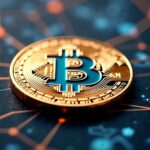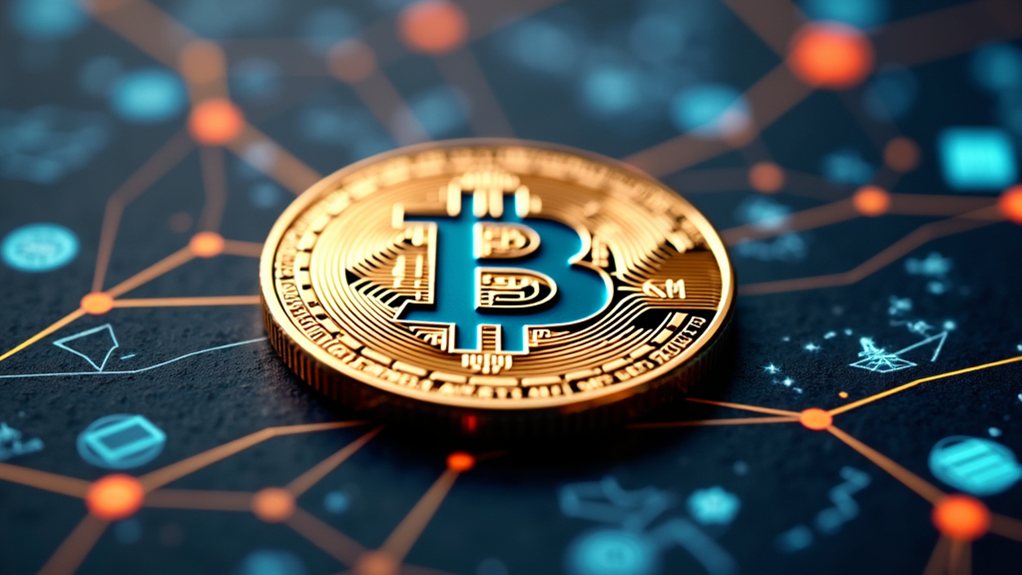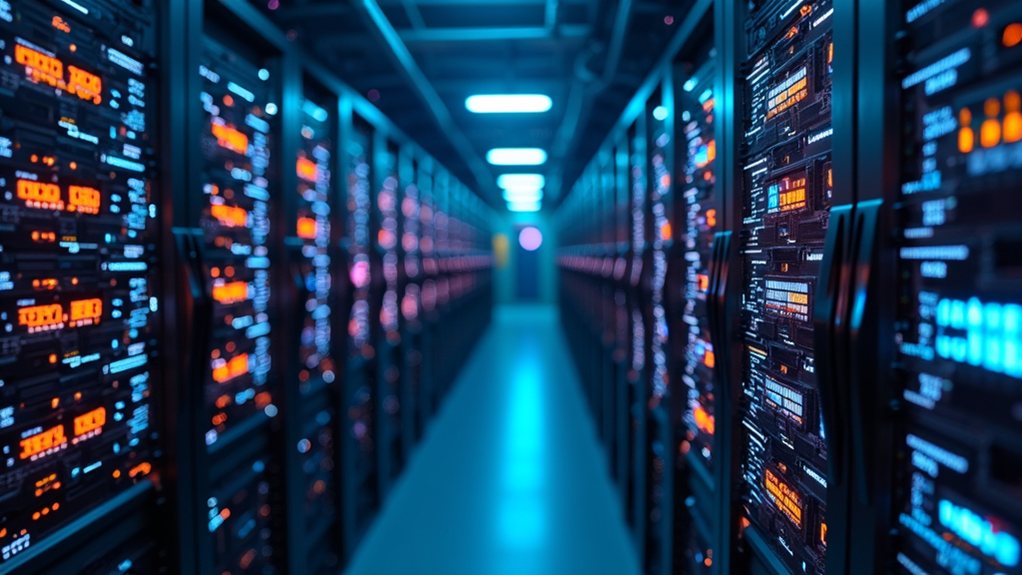NFTs (Non-Fungible Tokens) are unique digital items stored on blockchain technology. Unlike cryptocurrencies, they can't be exchanged equally with one another. Each NFT contains distinct metadata that verifies ownership of digital assets like artwork, music, or game items. They're bought and sold on specialized marketplaces, with prices ranging widely. The NFT market grew to over $11 billion in 2021, though it faces challenges including environmental concerns and copyright issues. Further exploration reveals their complex ecosystem.

NFTs, or Non-Fungible Tokens, have exploded onto the digital landscape in recent years. These digital assets represent ownership of unique items and exist as cryptographic tokens on blockchain networks. Unlike cryptocurrencies such as Bitcoin or Ethereum, NFTs aren't interchangeable with each other. Each NFT contains unique metadata and identification codes that make it one-of-a-kind.
The defining characteristic of NFTs is their non-fungibility. This means each token is unique and can't be exchanged equally for another NFT. They're also indivisible, so you can't purchase a fraction of an NFT like you can with Bitcoin. Since they exist on a blockchain, NFTs are fundamentally indestructible and ownership is easily verifiable through public blockchain records.
NFTs stand apart through their unique, indivisible nature—digital assets with verifiable ownership that cannot be exchanged like common cryptocurrencies.
Most NFTs are built on the Ethereum blockchain using token standards called ERC-721 and ERC-1155. The process of creating an NFT is called "minting." Once minted, NFTs can be stored in digital wallets and traded on specialized marketplaces where buyers and sellers meet.
The applications for NFTs are diverse and growing. Digital art has become one of the most prominent use cases, allowing artists to sell unique digital creations directly to collectors. NFTs also appear in gaming as unique items, virtual real estate, music rights, sports memorabilia, event tickets, and even identity verification. Blockchain gaming has become particularly significant, attracting 1.1 billion in investments in Q2 2024 alone.
The NFT market has seen remarkable growth. In 2021, the global NFT market was valued at approximately $11.3 billion. Projections suggest it could reach $230 billion by 2030. During 2021, there were about 2.5 million NFT buyers generating over $17 billion in trading volume. The average NFT sold for around $807 in 2021.
NFTs offer several advantages to creators and collectors. They provide clear proof of ownership for digital assets, which was difficult before blockchain technology. They allow creators to monetize their work directly without middlemen. Some NFTs even include "smart contracts" that automatically give creators a percentage of future resales.
Despite their popularity, NFTs face several challenges. The environmental impact of blockchain networks has raised concerns about energy consumption. Questions about copyright and intellectual property rights remain unresolved in many cases. The market has shown significant volatility, with prices fluctuating dramatically. The lack of regulation has led to numerous scams and fraud cases. It's important to note that purchasing an NFT does not automatically grant copyright or IP rights to the underlying work unless explicitly transferred by the creator.
As the technology continues to develop, NFTs represent a fundamental shift in how we think about digital ownership. They serve as irrevocable certificates of authenticity for both digital and physical assets on the blockchain. Whether they're a passing trend or a permanent fixture of the digital economy remains to be seen, but their impact on digital commerce and ownership concepts is undeniable.
Frequently Asked Questions
Are NFTS Environmentally Harmful?
NFTs were environmentally harmful when based on Ethereum's energy-intensive Proof-of-Work system.
Before 2022, NFT transactions consumed significant electricity, with the average NFT generating about 48kg of CO2.
However, Ethereum's 2022 "Merge" to Proof-of-Stake reduced energy consumption by 99.95%.
Today's NFT market offers more eco-friendly options, including carbon-neutral platforms and efficiency improvements like "lazy minting" that reduce environmental impact.
Can NFTS Be Stolen or Hacked?
Yes, NFTs can be stolen or hacked through various methods.
Phishing attacks trick owners into revealing wallet credentials. Malware can compromise private keys. Social engineering scams manipulate users into transferring NFTs. Smart contract vulnerabilities enable unauthorized transfers.
In 2022, hackers stole $1.7 billion in crypto assets, including major NFT thefts like $3.4 million from OpenSea users and $13.7 million in Bored Ape NFTs.
How Do You Spot NFT Scams?
NFT scams can be spotted through several red flags.
Fake websites mimic legitimate platforms but have different URLs.
Too-good-to-be-true offers often promise unrealistic returns.
Anonymous project teams without verifiable backgrounds raise concerns.
Suspicious social media accounts with few followers or recent creation dates shouldn't be trusted.
Pressure tactics urging immediate purchases are warning signs.
Smart contracts without audits can hide malicious code.
Copied artwork indicates potential fraud.
Will NFTS Remain Valuable Over Time?
The future value of NFTs remains uncertain.
Market experts point to a shift from purely speculative assets to those with practical uses. NFTs with real utility, like digital tickets or property deeds, have better long-term prospects.
Major companies continue investing in the technology despite market downturns. However, many purely collectible NFTs have already lost significant value.
The market's maturation will likely separate valuable applications from passing fads.
What Regulations Govern NFT Marketplaces?
NFT marketplaces operate in a regulatory gray area. Most countries don't have specific NFT rules yet. Regulators are deciding if NFTs are securities, digital assets, or something else.
Some marketplaces must follow anti-money laundering laws and require customer identification for high-value sales. They're also responsible for preventing copyright infringement and protecting consumers from fraud.
As NFTs grow in popularity, more regulations are likely to emerge.










